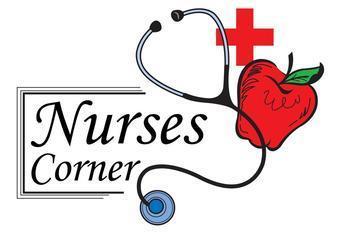Nurse's Corner

The NJ Department of Health and Senior Services has revised the administrative rules for immunizations of school pupils. The changes include additional requirements for children attending sixth grade. The Amended regulations are as follows:
Every child born on or after January 1,1997 and entering or attending grade 6 shall have received one (1) dose of Tdap (Tetanus, diphtheria, acellular pertussis) given no earlier than the 10th birthday.
Children entering or attending grade 6 on or after September 1, 2008 who received a Td booster dose less than 5 years prior to entry or attendance shall not be required to receive a Tdap dose until 5 years have elapsed from the date of the last DTP/DTaP or Td /DT dose.
Every child born on or after January 1,1997 and entering or attending grade 6 shall have received (1) dose of a meningococcal containing vaccine, such as the medically preferred meningococcal conjugate vaccine.
Documentation of immunization must be received before the commencement of school in September.
If you have any questions on the requirements, please call Mr. Tate.
____________________________________________________________________________

Hand washing is the most important defense against illness. The number of children and adults who do not wash their hands after using the restroom is staggering. Please reinforce with your family members that hand washing is vital.
Following are some good practices to help prevent illness: Keep hands away from nose and mouth areas. When coughing or sneezing, cough into your sleeved, bent elbow or into a tissue and dispose of it properly. Using a bare hand will only spread the germs to surfaces you touch.
Washing your hands is the best way to protect yourself from getting sick. Use soap & water and rubs all areas of your hands, nails and between fingers, vigorously lathering for 30 seconds. Wash after blowing your nose, using the bathroom or any possible contact with contaminants, before eating and any other opportunities throughout the day.
Choose a variety of foods. Aim for at least 2 servings of fruit and 3 servings of vegetables a day. Skip the fatty, sugary snacks; they're high in calories and lacking in nutritional value. Instead munch on vegetables, fruit or yogurt. Low or fat free sour cream can be used to make some tasty dips. Drink water (the best thirst quencher) & low fat milk instead of soda & artificial fruit drinks.
Too little sleep can affect your growth, your immune system and your overall well-being. Children need at least 9-11 hours of sleep a night.
Exercise helps your heart to be stronger, develops your muscles, helps you to move easier & be more flexible, helps you to maintain balance and uses calories to keep your weight within a healthy range. It also boosts your immune system, reduces stress and overall makes you feel good. Aim for a total of 60 minutes a day.
Take time for yourself to do something you enjoy. Meditation, participation in a favorite sport, hobby or activity can help reduce stress and boost your mood.
OTHER TIPS
- Consider keeping a small bottle of waterless hand sanitizer in the desk.
- Pack a hand washing towelette in the lunch to clean hands before eating.
- Stay away from sick people and keep sick children home from school to recuperate.
- Do not share drinks, makeup, combs, brushes, hats, or towels with anyone.

Sometimes it is difficult to decide if your child is well enough to attend school. Even in the case of the common cold, some children are able to function quite well, while others can feel quite miserable. Here are some pointers to help you in deciding when to keep your child home from school. If your child has had any of the following symptoms within the past 24 hours, he should not be sent to school.
- Nausea/vomiting
- Temperature 100° or above
- Repeated diarrhea
- Acute cold symptoms
- Sore throat
- Persistent cough
- Red eyes or eye discharge
- Lethargic behavior/ simply not feeling well enough to be productive at school
Children with fever (Temp. >100°) must remain out of school until they are fever free for a minimum of 24 hours without the use of fever reducing medication.
Children with strep throat and conjunctivitis are not permitted to return to school until they have been taking the appropriate medication for treatment for 24 hours and have a note from the doctor stating when the child is cleared to return to school.
____________________________________________________________________________




